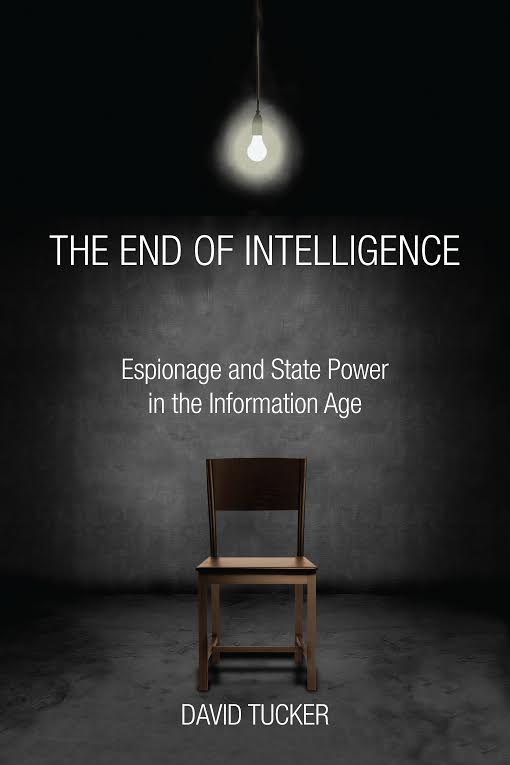Ashbrook Senior Fellow Writes on Intelligence, National Security, and Civil Liberties
December 24, 2020

Part of what distinguishes the Ashbrook Center as a leader in civic education is the quality of the scholars it attracts. The work that theses scholars do has a tremendous amount of variety and is pertinent to Ashbrook’s mission to teach students, teachers, and citizens. One such notable and recent piece of scholarship comes from Ashbrook Senior Fellow David Tucker. Dr. Tucker recently published The End of Intelligence: Espionage and State Power in the Information Age with Stanford University Press. We asked him about some of the challenges to intelligence that arose with the information revolution.
What do you mean by “the end of intelligence”? 
With the information revolution of the past twenty years, some now ask whether the intelligence business, understood as the stealing of secret information, is still needed. They argue that with so much “open source” information available, the traditional approach is obsolete. For example, after 9/11 some people speculated that by gathering information about every commercial transaction in America, we could have spotted the movements of the terrorist attackers and prevented what they did. They argued computer analysis would have allowed us to correlate independent events and find patterns. Others say the 9/11 attacks were so unprecedented that we would not have known to look for such patterns. They argue that we need intelligence to alert us to threats we don’t expect. My book examines this argument, while also discussing the enduring purpose of intelligence. It makes espionage, using humans to steal secrets, the test case.
How do you understand the purpose of intelligence?
It has always been essential. Government is coeval with ways of gathering and controlling information; when ancient scribes figured out how to stamp clay tablets with marks showing how much grain was sold, governments could begin to collect taxes. Until a couple of hundred years ago, privacy was reserved for government. Everything about the ruler was to be kept secret, whereas the subjects’ activities even in their own homes were to be known by the ruler. The principle function of intelligence services was to spy on one’s subjects, just as the principle function of the military was to keep subjects in line. Of course, the First and Fourth Amendments to our Constitution overturn this understanding. They create a private space in which people can say and think what they want. Today, the military, and intelligence, are directed at foreign enemies. But it gets complicated when we suspect we have foreign enemies at home, so to speak.
The United States was able to practice its revolutionary understanding of privacy for the first century of our existence, at least in part, because we were shielded from powerful enemies by two oceans. We did not develop a full-time civilian professional intelligence service until after World War II — some sixty years after the Europeans did.
Do you think that the digital revolution has given private groups, such as terrorists, new tools to use against governments? For example, do projects like “WikiLeaks” make it easier for our enemies to attack us?
In my view, the exact opposite has happened. Non-state actors and private citizens have gained power, but the state has gained even more. Since 9/11, our government has been gathering much more information about what we do. WikiLeaks and the Snowden revelations were inside jobs, not evidence that non-state actors have new power.
Has the digital revolution given government power that it could misuse at home?
Anything the government can do overseas it can do inside the U.S. — much more easily, in fact. There are legal restrictions, but no technical restrictions. This problem was recognized after World War II. Because we were engaged in what seemed an unending war with the Soviet Union, we could not relax information collection, and people worried for this and other reasons that we were headed toward a “garrison state.” As it turned out, Supreme Court decisions strengthened the free speech rights of Americans. But since the arrival of new information-gathering capabilities, we have not yet struck the new balance.
Does our government need to curtail its intelligence operations? Can we do this and maintain our security?
We need to target our operations more carefully. Everyone says this, yet it is very hard to do. To target properly, we would need to already know what we are trying to find out. Still, we must not neglect clandestine intelligence work using human agents. A human agent inside an organization will know what is not put in e-mails or memos but whispered, and he can pick out the critical information. Human agents are also less likely to violate privacy than powerful technology, in my opinion.

